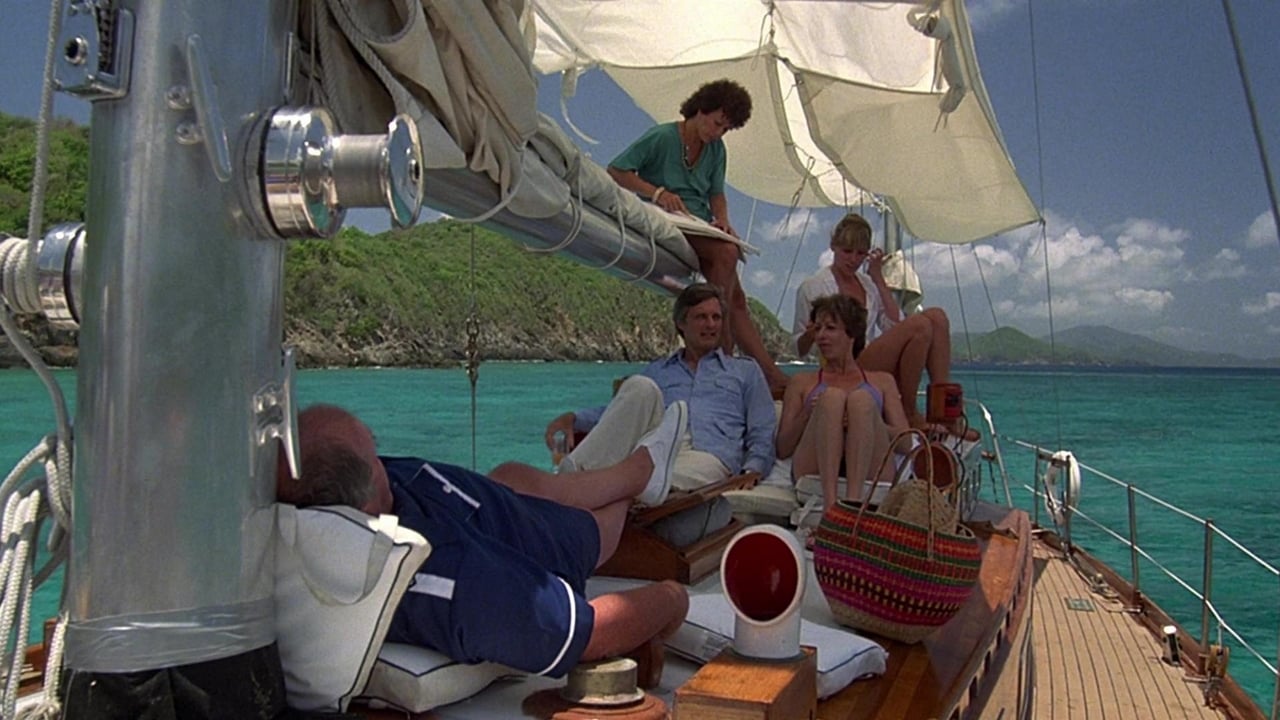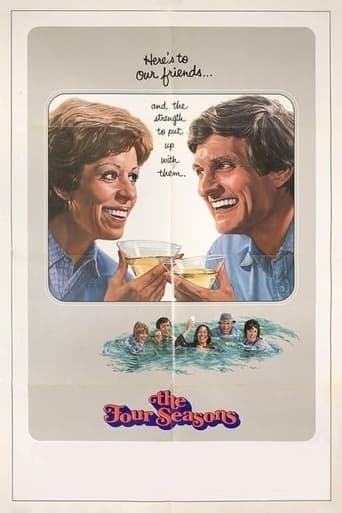

I think this is a new genre that they're all sort of working their way through it and haven't got all the kinks worked out yet but it's a genre that works for me.
... View MoreToo much of everything
... View MoreEasily the biggest piece of Right wing non sense propaganda I ever saw.
... View MoreThere is, somehow, an interesting story here, as well as some good acting. There are also some good scenes
... View More...and you do not know why. maybe, for its courage and high art and wise manner to show simple things about human relations. maybe for the great acting. or only for Aidan Alda. for its charming way to translate basic things in great scenes. for the seductive atmosphere. for the beautiful vision about conflicts and sickness and friendship, and love and need to be part of the other. nothing new. but real important. this is all.
... View MoreIn one's life, there may come along, a handful of truly great movies that move you each and every time you view them. This is one of those films for me. Along with Same Time, Next Year and Love Story, this is one of my forever favorite films. The acting is outstanding, the writing is great, the scenery is terrific, and the storyline is not over-the-top, but very believable. You can put yourself in the place of each man or woman depending on your gender and say to yourself, yes, that really could happen and it may have happened to one or more of you readers. This is worth a look and if you are an avid collector, add it to your collection so your kids and maybe grandkids can have a look at something beyond the crap that is coming out of Hollywood these days.Ten out of ten for me.
... View MoreAlthough it has great actors, this movie bombs. The characters spend most of the movie squabbling with each other and make a point of saying exactly what's on their minds. The camera coverage of "nature" elements doesn't do much for the story itself, which is super weak. There's some good dialogue here and there, mostly between Burnett and Alda - Alda was one of Carol's favorite guest stars on her variety show. It was good that Sandy Dennis's "lamest of the lame" character, Anne, was divorced out in the early part of the story. Bess Armstrong (as Ginny) comes in and nicely mixes things up, providing Len Cariou (as Nick Callan) with a partner who satisfies him sexually and emotionally in ways that the flighty/flaky Anne could not. Burnett and Alda are a cute couple, but Moreno and Weston have ZERO chemistry. Alda's two (unattractive) daughters do nicely in their brief five minute appearances. The music (by Vivaldi) is about all the movie has to really recommend it. I think I laughed the hardest at some of the trite and trivial things these "close friends" argue about - perhaps this was the way groups of friends interacted 30 years ago? AND, I couldn't help but ROTF-LOL at the scene where the three guys "race" on their motorcycles in the woods...and at Alda's goofy fall (that is supposed to look bad enough to warrant him breaking his ankle.) Watch this movie on a weekend if you have absolutely nothing else in the world to do, and definitely don't watch it with a date or a spouse.
... View MoreA film with many interesting ideas about friendships and relationships, it is acted realistically and one gets to know and understand each of the individual characters quite well. The episodic nature of the film makes it feel a tad disjointed, lacking in sense of time, and it really could have been better left to just drama, and not comedy. Still, the film manages to insert both moments that are genuinely funny, and others that are dramatically gripping. Some sections are a bit awkward when Alda tries for comedy, but the drama really hitting home makes up for this. It may not be perfect viewing, but this is still excellent stuff.
... View More